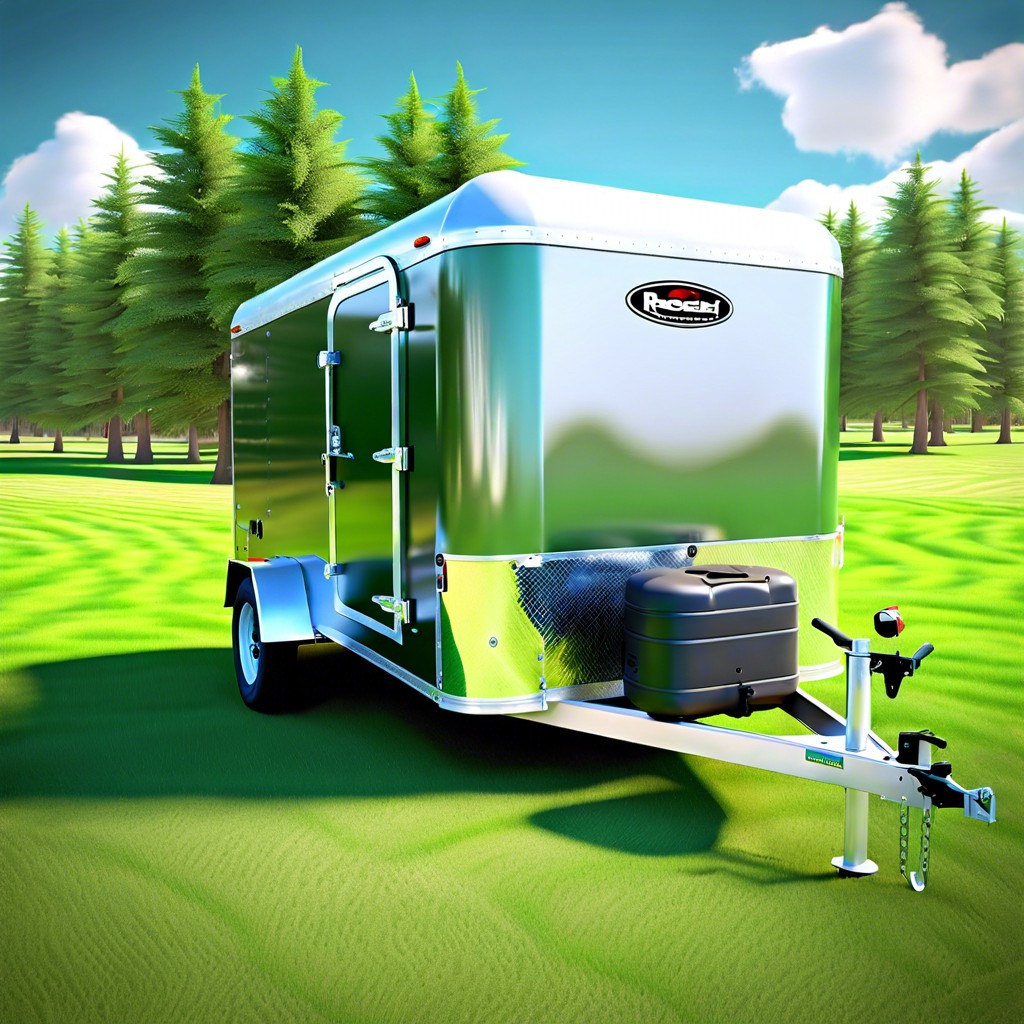Welcome to our buying guide on landscape trucks for sale, where you’ll learn how to select the right vehicle for your business needs, understand the aspects of landscape trucks, and discover tips for making a wise purchase.
Key takeaways:
- Different types of landscape trucks cater to various needs.
- Choose between new and used trucks based on budget and maintenance concerns.
- Consider brand reputation, size, capacity, and features when pricing landscape trucks.
- Add-ons like storage solutions, loading systems, and lighting can enhance productivity.
- Regular maintenance, including oil changes, tire checks, and brake inspections, is essential for long-term performance.
Understanding the Different Types of Landscape Trucks

Landscape trucks come in various shapes and sizes, each tailored to accommodate different needs in the field of landscaping. A common choice is the flatbed truck, prized for its versatility and ability to transport large items such as trees or soil. Specifically, a flatbed with removable sides offers even greater flexibility, allowing landscapers to load and unload materials from any side with ease.
Another popular type is the dump truck, which is invaluable for projects that involve moving large quantities of loose material. Its hydraulic lift system makes unloading fast and efficient—an essential feature when time is of the essence.
For those looking to carry tools, plants, and smaller equipment, utility trucks with storage compartments provide organization and protection for delicate items. They often feature locking toolboxes and specialized racks designed for landscape maintenance tools.
The landscape crew cab truck, featuring additional seating, allows larger teams to travel together alongside their equipment. This type of truck combines personnel transport with equipment hauling capability, making it a convenient all-in-one solution for many businesses.
Consider, too, the importance of towing capacity for those who need to pull trailers filled with mowers or other heavy machinery. Therefore, it’s vital to select a truck with the appropriate power and hitch setup to meet these demands.
Lastly, industry advancements have led to the advent of eco-friendly landscaping trucks. These models run on alternative fuels such as biodiesel or electricity and are perfect for businesses prioritizing sustainability.
In selecting the right landscape truck, the key is to consider the specific tasks it will be used for, ensuring that the vehicle’s capacity and features align with the demands of the landscaping work to be done.
Assessing the Advantages of New Vs. Used Landscape Trucks
When it comes to purchasing a landscape truck, opting between a shiny new model or a seasoned used one can significantly impact both your initial investment and long-term costs.
New landscape trucks are appealing for their latest features, technological advancements, and manufacturer warranties, which can offer peace of mind. The assurance that comes with knowing your vehicle has no wear and tear means less immediate concern over maintenance or unexpected repairs. Plus, financing rates for new vehicles are often more favorable, and you’ll have the opportunity to customize the truck to suit your specific landscaping needs.
On the flip side, used landscape trucks bring to the table the benefit of lower upfront costs. The depreciation hit has already been absorbed by the first owner, giving you more truck for your buck. For businesses with a tight budget or those just starting, this can be a deciding factor. However, it’s important to be thorough when inspecting a used truck. Look for a robust service history to ensure it’s been well-maintained and be prepared for potentially higher maintenance costs in comparison to a new truck.
Remember, the best choice is contingent on balancing the initial cost with the expected lifespan and operating expenses of the landscape truck. Always consider the value of a vehicle over its lifetime, not just the price on the tag.
How to Navigate Landscape Truck Pricing
When delving into landscape truck pricing, it’s crucial to have a clear understanding of factors that influence the cost. First up, brand reputation plays a significant role. Well-known manufacturers often command higher prices due to their proven durability and reliability.
Secondly, size and capacity make a difference. More substantial trucks with greater payload capabilities will typically have a heftier price tag. Similarly, the engine size and fuel efficiency can impact running costs over time, which is something to consider when looking at the initial price.
Features and customization can also elevate the price. If you require a truck with a hydraulic lift, refrigeration unit, or specialized storage compartments, these will add to the cost.
Looking at market trends can provide useful insights into when it might be cheaper to buy. Sometimes dealers offer end-of-season sales, clearance events, or financial incentives that make purchasing more attractive.
Remember, financing options can spread the cost of a landscape truck, making it more accessible to different budgets. It’s essential to compare rates and terms from various lenders to ensure you get the best deal.
Lastly, don’t forget to factor in the potential resale value. Trucks that maintain their worth over time can reduce the overall cost of ownership, which is an important consideration when planning your investment.
Determining Useful Add-Ons for Landscape Trucks
Selecting the right add-ons for your landscape truck can significantly enhance productivity and efficiency. Firstly, consider storage solutions: toolboxes and shelving units keep equipment secure and organized. Lockable drawers are ideal for safeguarding valuable tools.
Then look at loading systems. A ramp or a hydraulic lift can save time and reduce strain when handling heavy machinery like lawnmowers or soil aerators. Additionally, water tanks are essential for irrigation projects or maintaining planters on the go.
Don’t overlook the importance of towing capabilities. A hitch and electrical wiring for trailer lights expand the services you can offer, such as hauling soil, mulch, or debris.
Lastly, for those late or early hours, good lighting is crucial. LED light bars can illuminate work areas after dark, ensuring safety and enabling you to work effectively regardless of the time.
By carefully considering these functional extras, you’re investing in the versatility and long-term success of your landscape business.
Maintenance Requirements for Keeping Landscape Trucks in Top Condition
Regular maintenance is crucial to extend the lifespan of your landscape truck and ensure it operates safely and efficiently. By keeping up with these simple tips, you can avoid unexpected downtime and costly repairs.
Firstly, prioritize oil changes and filter replacements according to the manufacturer’s recommendations. Consistent oil changes keep your engine clean and running smoothly. In addition to oil, be sure to check and top off other essential fluids, such as brake, transmission, and coolant fluids.
Secondly, don’t overlook the importance of tire maintenance. This includes checking for proper tire pressure, which can improve fuel efficiency and reduce wear. Also, rotate your tires regularly to ensure even tread wear and replace them when they’re worn down or damaged.
Keep an eye on your truck’s brakes. Because landscape trucks often carry heavy loads, their brakes can wear down faster than those of lighter vehicles. Look out for any changes in brake performance and heed any service indicators on your dash.
Another aspect is engine and battery maintenance. Regular checks on your engine’s performance can catch minor issues before they turn into major problems. Similarly, ensure your battery’s connections are clean, tight, and corrosion-free to avoid startup issues.
Finally, remember that the cleanliness of your vehicle can also play a role in its longevity. Dirt and debris can cause rust and corrosion, so wash the exterior regularly and ensure the dump body or storage areas are clear of materials that could cause damage.
Regular professional inspections can help identify potential problems early on, so team up with a trusted mechanic experienced in working with landscape trucks. With attentive care, your landscape truck will remain a reliable asset to your landscaping business for years to come.




